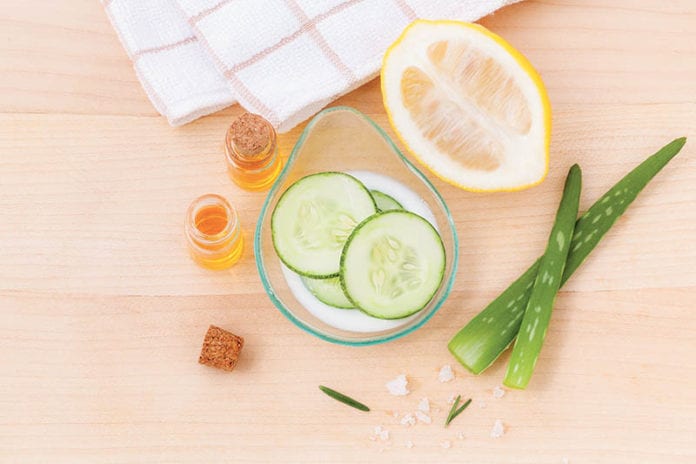Long hours, dry hospital air and a job that is often emotionally intense can all wreak havoc on your appearance over time. Your skin may start to show stress that makes you look and feel less than your best. Here are some ways you can help keep your body’s largest organ in good shape.
1. Restore Your Skin
Your hands bear the brunt of frequent washing and sanitizing in a healthcare setting. Keep heavy-duty, non-scented hand moisturizers available at work and use them liberally throughout the day. Cetaphil Restoraderm moisturizer has actually proven its value in several medical research studies with results published in the Journal of Drugs in Dermatology. It’s helpful for relieving dryness and itching and restoring the skin barrier. It also provides faster relief than topical steroids alone for treating atopic dermatitis. Of course, there are other brands on the market with similar ingredients that you can use as well. Look for products that contain “ceramides” (lipids). If you want to share a hand moisturizer with coworkers, choose a lotion version of the formula in a squirt bottle rather than a cream version in a tub to prevent cross-contamination.
2. Zap Skin Stress with Antioxidants
Did you know that researchers at the University of Berlin have developed an optical scanning device that can measure certain health factors by shining a light on a person’s skin and analyzing the backscatter? Researchers have found they can detect the impact of lifestyle habits within just a few days of the time a person starts making healthier choices. They can actually tell the difference in what you eat and drink as antioxidant levels rise in your body to fight off free radicals. Imagine what a month of better diet choices could do to boost our skin health! So, grab a low-sodium V8 from the vending machine instead of a soft drink and choose fresh fruit whenever it’s available in the hospital cafeteria.
3. Stop Smoking!
According to a study by UCLA’s Jonsson Cancer Center, 16 percent of nurses smoke. Nurses are actually more likely than healthcare professionals in any other field to have a cigarette habit. If you fall into this category, you already know that smoking adds years to your face—making skin leathery, wrinkled and sallow before its time. For nurses, the #1 problem standing in the way of kicking the habit appears to be lack of support at work. It’s understandable that you may feel uncomfortable attending a smoking cessation group with your patients. None of us likes to feel that we’re being judged, and healthcare workers are definitely held to a higher standard when it comes to smoking. So, see if you can team up with other nurses at your hospital to help you kick the habit in a setting that feels friendly and supportive.
4. Pamper Your Skin All Over
The scrubs you pick can make a big difference in comfort level for your skin. Cotton is a good starting place if you’re sensitive to synthetic fibers. But a polyester, cotton and spandex blend is actually more effective for keeping sweat off your skin throughout the day. Look for styles that have a moisture-wicking panel on the sides and under the arms. Wear a size that’s loose enough to allow airflow rather than one that binds at any point. Reducing friction and moisture buildup can reduce skin problems like rashes, body acne, tinea, skin tags and more.
5. Ramp Up Your Skincare Routine Off Shift
If you experience hand dryness from all that washing up at work, the last thing you need to do when you finally arrive at home is to get your hands dirty. Wear cotton gloves for housework to keep your hands clean (and not sweaty). Use a long-handled brush for washing dishes instead of plunging your hands and arms into hot water. If the skin on your hands is red and cracked, it’s time for an old-fashioned treatment: Slather your hands with Vaseline and cover them with tube socks overnight. If you don’t have a problem with fragrances, you can buy a brand of petroleum jelly that’s scented with chamomile or lavender. Your hands will smell like you spent all night at the spa! This treatment works for your feet as well.
What do you think? Share your skin health tips in the comment section below.
This article was republished with permission from SCRUBS Magazine.


